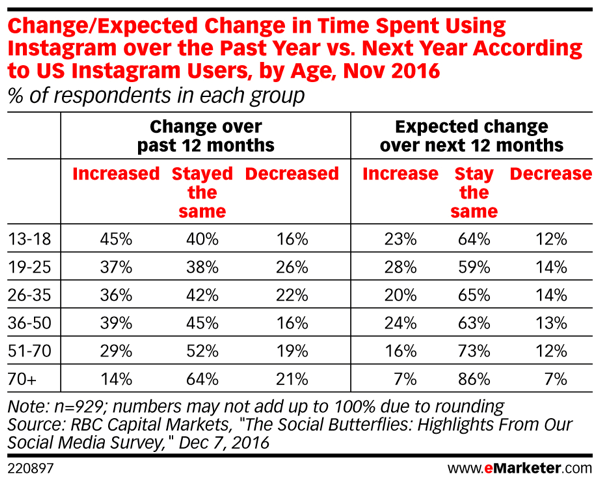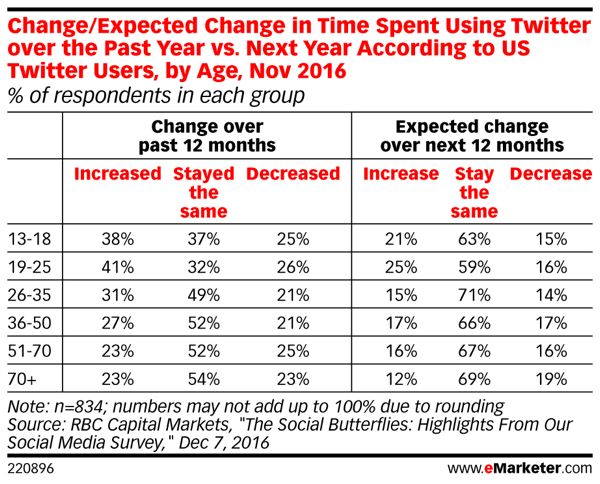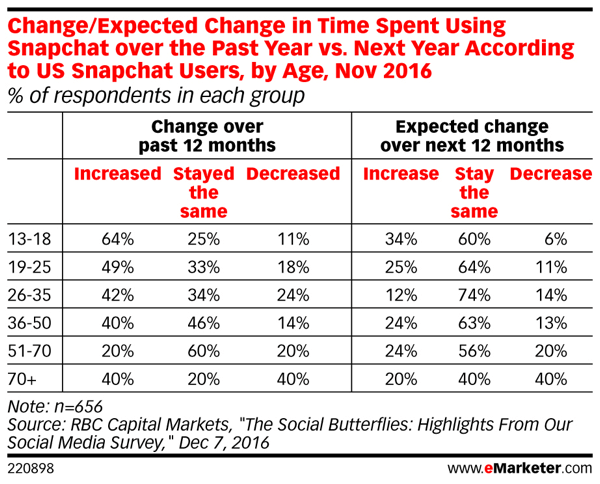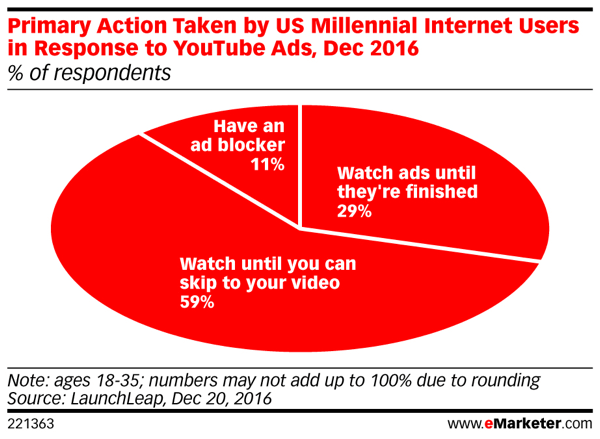My note: 17 years after, and several generations after (Millennials, Gen Z) the observations still hold
Singer, M. (2002, February 13). Teaching the MTV Learner. The Chronicle of Higher Education. Retrieved from https://www.chronicle.com/article/Teaching-the-MTV-Learner/46241
Britney Spears does have more appeal than most quadratic equations. With thousands of dollars of high-tech digital engineering spent on every word uttered, or in this case, sung, how can the typical college professor compete?
“In China today, Bill Gates is Britney Spears. In America today, Britney Spears is Britney Spears-and that is our problem.” ― Thomas L. Friedman, The World Is Flat: A Brief History of the Twenty-first Century https://www.goodreads.com/quotes/304461-in-china-today-bill-gates-is-britney-spears-in-america
MTV Learners are seeking warp-speed answers to their life issues. They want to know: “What does this information (your course) have to do with me (self-actualization)?” and “What does this information (your course) have to do with my career (my choice of vocation)?”
Be democratic, not autocratic. Instead of management by fiat, try taking regular opinion polls and surveys of your students to determine the specific methods of teaching your course.
Try to eliminate the lecture-test, lecture-test, lecture-test format and substitute other learning models that accentuate the choices of the MTV Learner. Focus on the quality of your syllabus as a giant “master operating agreement” that presents the learning objectives of your course and related policies in a manner that is as clear and as easy to understand as possible. Without sounding too litigious on your syllabus, present the consequences of missed absences, overdue work, incomplete assignments, and the like.
Can We Please Stop Talking About Generations as if They Are a Thing?
Millennials are not all narcissists and boomers are not inherently selfish. The research on generations is flawed.
DAVID COSTANZA
APRIL 13, 2018 9:00 AM
+++++++++++++++
SIVA VAIDHYANATHAN, 2008. https://www.chronicle.com/article/Generational-Myth/32491 Generational Myth
My note: Siva raised this issue from a sociologist point of view as soon as in 2008. Before him, Prensky’s “digitally natives” ideas was already criticized.
Howe and Strauss; Millennials books contributed to the overgeneralizations. https://en.wikipedia.org/wiki/Strauss%E2%80%93Howe_generational_theory
+++++++++++++++++
We spend a lot of time debating the characteristics of generations—are baby boomers really selfish and entitled, are millennials really narcissists, and the latest, has the next generation (whatever it is going to be called) already been ruined by cellphones? Many academics—and many consultants—argue that generations are distinct and that organizations, educators, and even parents need to accommodate them. These classifications are often met with resistance from those they supposedly represent, as most people dislike being represented by overgeneralizations, and these disputes only fuel the debate around this contentious topic.
In short, the science shows that generations are not a thing.
It is important to be clear what not a thing means. It does not mean that people today are the same as people 80 years ago or that anything else is static. Times change and so do people. However, the idea that distinct generations capture and represent these changes is unsupported.
What is a generation? Those who promote the concept define it as a group of people who are roughly the same age and who were influenced by a set of significant events. These experiences supposedly create commonalities, making those in the group more similar to each other and more different from other groups now and from groups of the same age in the past.
In line with the definition, there is a commonly held perception that people growing up around the same time and in the same place must have some sort of universally shared set of experiences and characteristics. It helps that the idea of generations intuitively makes sense. But the science does not support it. In fact, most of the research findings showing distinct generations are explained by other causes, have serious scientific flaws, or both.
For example, millennials score lower on job satisfaction than Gen Xers, but are millennials really a less satisfied generation? Early in their careers, Xers were also less satisfied than baby boomers.
Numerous books, articles, and pundits have claimed that millennials are much more narcissistic than young people in the past.
on average, millennials are no more narcissistic now than Xers or boomers were when they were in their 20s, and one study has even found they might be less so than generations past. While millennials today may be more narcissistic than Xers or boomers are today, that is because young people are pretty narcissistic regardless of when they are young. This too is an age effect.
Final example. Research shows that millennials joining the Army now show more pride in their service than boomers or Xers did when they joined 20-plus years ago. Is this a generational effect? Nope. Everyone in the military now shows more pride on average than 20 years ago because of 9/11. The terrorist attack increased military pride across the board. This is known as a period effect and it doesn’t have anything to do with generations.
Another problem—identifying true generational effects is methodologically very hard. The only way to do it would be to collect data from multiple longitudinal panels. Individuals in the first panel would be measured at the start of the study and then in subsequent years with new panels added every year thereafter, allowing assessment of whether people were changing because they were getting older (age effects), because of what was happening around them (period effects), or because of their generation (cohort effects). Unfortunately, such data sets pretty much do not exist. Thus, we’re never really able to determine why a change occurred.
According to one national-culture model, people from the United States are, on average, relatively individualistic, indulgent, and uncomfortable with hierarchical order.
My note: RIchard Nisbett sides with Hofstede and Minkov: https://blog.stcloudstate.edu/ims/2016/06/14/cultural-differences/
Conversely, people from China are generally group-oriented, restrained, and comfortable with hierarchy. However, these countries are so large and diverse that they each have millions of individuals who are more similar to the “averages” of the other country than to their own.
Given these design and data issues, it is not surprising that researchers have tried a variety of different statistical techniques to massage (aka torture) the data in an attempt to find generational differences. Studies showing generational differences have used statistical techniques like analysis of variance (ANOVA) and cross-temporal meta-analysis (CTMA), neither of which is capable of actually attributing the differences to generations.
The statistical challenge derives from the problem we have already raised—generations (i.e., cohorts) are defined by age and period. As such, mathematically separating age, period, and cohort effects is very difficult because they are inherently confounded with one another. Their linear dependency creates what is known as an identification problem, and unless one has access to multiple longitudinal panels like I described above, it is impossible to statistically isolate the unique effect of any one factor.
Are some millennials narcissistic? Are some boomers selfish? Sure, but there are many who are not and whose profiles mirror other generations.
First, relying on flawed generational science leads to poor advice and bad decisions. An analogy: Women live longer than men, on average. Why? They engage in fewer risky behaviors, take better care of themselves, and have two X chromosomes, giving them backups in case of mutations. But if you are a man and you go to the doctor and ask how to live longer, she doesn’t tell you, “Be a woman.” She says eat better, exercise, and don’t do stupid stuff. Knowing the why guides the recommendation.
Now imagine you are a manager trying to retain your supposedly job-hopping, commitment-averse millennial employees and you know that Xers and boomers are less likely to leave their jobs. If you are that manager, you wouldn’t tell your millennial employees to “be a boomer” or “grow older” (nor would you decide to hire boomers or Xers rather than millennials—remember that individuals vary within populations). Instead, you should focus on addressing benefits, work conditions, and other factors that are reasons for leaving.
Second, this focus on generational distinctions wastes resources. Take the millennials-as-commitment-averse-job-hoppers stereotype. Based on this belief, consultants sell businesses on how to recruit and retain this mercurial generation. But are all (or even most) millennials job-hopping commitment avoiders? Survey research shows that millennials and Xers at the same point in their careers are equally likely to stay with their current employer for five or more years (22 percent v. 21.8 percent). It makes no sense for organizations to spend time and money changing HR policies when employees are just as likely to stick around today as they were 15 years ago.
Third, generations perpetuate stereotyping. Ask millennials if they are narcissistic job-hoppers and most of them will rightly be offended. Treat boomers like materialistic achievement seekers and see how it affects their work quality and commitment. We finally are starting to recognize that those within any specific group of people are varied individuals, and we should remember those same principles in this context too. We are (mostly) past it being acceptable to stereotype and discriminate against women, minorities, and the disabled. Why is it OK to do so to millennials or boomers?
The solutions are fairly straightforward, albeit challenging, to implement. To start, we need to focus on the why when talking about whether groups of people differ. The reasons why any generation should be different have only been generally discussed, and the theoretical mechanism that supposedly creates generations has not been fully fleshed out.
Next, we need to quit using these nonsensical generations labels, because they don’t mean anything. The start and end years are somewhat arbitrary anyway. The original conceptualization of social generations started with a biological generational interval of about 20 years, which historians, sociologists and demographers (for one example, see Strauss and Howe, 1991) then retrofitted with various significant historical events that defined the period.
The problem with this is twofold. First, such events do not occur in nice, neat 20-year intervals. Second, not everyone agrees on what the key events were for each generation, so the start and end dates also move around depending on what people think they were. One review found that start and end dates for boomers, Xers, and millennials varied by as many as nine years, and often four to five, depending on the study and the researcher. As with the statistical problem, how can distinct generations be a thing if simply defining when they start and when they end varies so much from study to study?
In the end, the core scientific problem is that the pop press, consultants, and even some academics who are committed to generations don’t focus on the whys. They have a vested interest in selling the whats (Generation Me has reportedly sold more than 115,000 copies, and Google “generations consultants” and see how many firms are dedicated to promulgating these distinctions), but without the science behind them, any prescriptions are worthless or even harmful
David Costanza is an associate professor of organizational sciences at George Washington University and a senior consortium fellow for the U.S. Army Research Institute. He researches, teaches, and consults in the areas of generations, leadership, culture, and organizational performance.
+++++++++++++++++++++
more on the topic in this IMS blog
https://blog.stcloudstate.edu/ims?s=millennials
Student Entitlement: Key Questions and Short Answers
By: Maryellen Weimer, PhD OCTOBER 4TH, 2017
https://www.facultyfocus.com/articles/teaching-professor-blog/student-entitlement-key-questions-short-answers
What is student entitlement?
“tendency to possess an expectation of academic success without taking personal responsibility for achieving that success.”
How widespread is it?
The research (and there’s not a lot) reports finding less student entitlement than faculty do.
Can a student be entitled without being rude and disruptive?
Yes. Students can have beliefs like those mentioned above and only discuss them with other students or not discuss them at all. Part of what makes entitlement challenging for teachers are those students who do verbally express the attitudes, often aggressively.
Are millennial students more entitled than previous generations? That’s another widely held assumption in the academic community, but support from research is indirect and inconsistent.
Is entitlement something that only happens in the academic environment? No, it has been studied, written about, and observed in other contexts (like work environments
What’s causing it?
A number think it’s the result of previous educational experiences and/or grade inflation. Some blame technology that gives students greater access to teachers and the expectation of immediate responses. Fairly regularly, student evaluations are blamed for the anonymous power and control they give students. And finally, there’s the rise in consumerism that’s now associated with education. Students (and their parents) pay (usually a lot) for college and the sense that those tuition dollars entitle them to certain things, is generally not what teachers think education entitles learners to receive.
How should teachers respond?
It helps if teachers clarify their expectations with constructive positive language and even more importantly with discussions of the rationales on which those expectations rest. Teacher authority gets most students to follow the rules, but force doesn’t generally change attitudes and those are what need to be fixed in this case.
October 18 for Student Entitlement: Truth, Fiction, or Some of Both and stay tuned for more in-depth information and resources that we’ll make available in Faculty Focus Premium in subsequent weeks.
References: Elias, R. Z. (2017). Academic entitlement and its relationship to cheating ethics. Journal of Education for Business, 92 (4), 194-199.
Greenberger, E., et. al. (2008). Self-entitled college students: Contributions of personality, parenting and motivational factors. Journal of Youth Adolescence, 37, 1193-1204.
++++++++++++++++++
Responding to Disruptive Students
Negative attention doesn’t help difficult students change their ways, but teachers can alter classroom dynamics through this exercise.
Mapping Behavior
Draw a map of your classroom, including doors, windows, desks, blackboards—all significant items and areas. I’m sure you’ve already got a clear idea of where the most challenging students usually sit. Now imagine teaching class on a regular day. Trace the paths you usually take across the room. Do you sometimes speed up for a particular reason?
Now put your breathing on the map. Are you conscious of the way you breathe during class? Use a new color and draw a wavy line on top of the lines and arrows you’ve already sketched. Does the wavy line look even, or have you drawn some chaotic or nervous zigzags? Could it be that you’ve sometimes forgotten to breathe?
Investing time in building physical and emotional familiarity with the learning environment, instead of nervously anticipating disruption, changes the educator’s perspective toward the whole class, their interaction with individual students, and their self-awareness. Negative attention stops being a solution—instead it is seen as a hindrance to the process of understanding students’ needs.
The Library in the Life of the User. Engaging with People Where They Live and Learn
p. 18
Library staff
The roles of librarians change with changes in user needs and demands and the technology employed. A survey conducted for Research Libraries UK found skill gaps in nine key areas in which subject librarians could be supporting researchers’ needs. Even though many librarians may want to hire new staff with these skills, a survey found that the reality for most will be training existing staff.
Definitions of library services will change. We need to grow the ways users can engage with whatever they value from libraries, whether papyrus rolls, maker spaces or data management instruction.
p. 19
What is the Unique Selling Point (USP) of libraries vis-à-vis other information service providers?
p. 21
Librarians should measure the effectiveness of services based on the users’ perceptions of success. Librarians also should move beyond surveys of how library space is being used and should conduct structured observations and interviews with the people using the space. It is not enough to know that the various spaces, whether physical or virtual, are busy. Librarians need to understand when and how the spaces are being used.
p. 33 What is Enough? Satisficing Information Needs
Role theory explains that: “When people occupy social positions their behavior is determined mainly by what is expected of that position rather than by their own individual characteristics” (Abercrombie et al., 1994, p. 360).
Rational choice theory is based on the premise that complex social behavior can be understood in terms of elementary individual actions because individual action is the elementary unit of social life. Rational choice theory posits that individuals choose or prefer what is best to achieve their objectives or pursue their interests, acting in their self-interest (Green, 2002). Stated another way, “When faced with several courses of action, people usually do what they believe is likely to have the best overall outcome” (Scott, 2000).
When individuals satisfice, they compare the benefits of obtaining “more information” against the additional cost and effort of continuing to search (Schmid, 2004)
p. 38
This paper examines the theoretical concepts—role theory, rational choice, and satisficing—by attempting to explain the parameters within which users navigate the complex information-rich environment and determine what and how much information will meet their needs.
p. 39
The information-seeking and -searching research that explicitly addresses the topic of “what is good enough” is scant, though several studies make oblique references to the stopping stage, or to the shifting of directions for want of adequate information. Kraft and Lee (1979, p. 50) propose three stopping rules:
1. The satiation rule, “where the scan is terminated only when the user becomes satiated by finding all the desired number of relevant documents”;
2. The disgust rule, which “allows the scan to be terminated only when the user becomes disgusted by having to examine too many irrelevant documents”; and
3. The combination rule, “which allows the user to be seen as stopping the scan if he/she is satiated by finding the desired number of relevant documents or disgusted by having to examine too many irrelevant documents, whichever comes first.”
p. 42
Ellis characterizes six different types of information activities: starting, chaining, browsing, differentiating, monitoring and extracting. He emphasizes the information- seeking activities, rather than the nature of the problems or criteria used for determining when to stop the information search process. In a subsequent article, Ellis (1997) observes that even in the final stages of writing, individuals may continue the search for information in an attempt to answer unresolved questions or to look for new literature.
p. 43
Undergraduate and graduate students
Situations creating the need to look for information (meeting assignment requirements):
• Writing research reports; and
• Preparing presentations.
Criteria used for stopping the information search (fulfilling assignment requirements):
1. Quantitative criteria:
— Required number of citations was gathered;
— Required number of pages was reached;
— All the research questions were answered; and
— Time available for preparing.
2. Qualitative criteria:
— Accuracy of information;
— Same information repeated in several sources;
— Sufficient information was gathered; and
— Concept understood.
Criteria used for stopping the information search (fulfilling assignment requirements):
1. Quantitative criteria:
— Required number of citations was gathered;
— Required number of pages was reached;
— All the research questions were answered; and
— Time available for preparing.
2. Qualitative criteria:
— Accuracy of information;
— Same information repeated in several sources;
— Sufficient information was gathered; and
— Concept understood.
p. 44
Faculty
Situations creating the need to look for information (meeting teaching needs):
• Preparing lectures and presentations;
• Delivering lectures and presentations;
• Designing and conducting workshops;
• Meeting scholarly and research needs; and
• Writing journal articles, books and grant proposals.
Criteria used for stopping the information search (fulfilling teaching needs):
1. Quantitative criteria:
— Time available for: preparing lectures and presentations; delivering lectures
— And presentations; and designing and conducting workshops; and
— Fulfilling scholarly and research needs.
2. Qualitative criteria:
— Every possible synonym and every combination were searched;
— Representative sample of research was identified;
— Current or cutting-edge research was found;
— Same information was repeated;
— Exhaustive collection of information sources was discovered;
— Colleagues’ feedback was addressed;
— Journal reviewers’ comments were addressed; and
— Publisher’s requirements were met.
1. Quantitative criteria for stopping:
— Requirements are met;
— Time constraints are limited; and
— Coverage of material for publication is verified by colleagues or reviewers.
2. Qualitative criteria for stopping:
— Trustworthy information was located;
— A representative sample of sources was gathered;
— Current information was located;
— Cutting-edge material was located;
— Exhaustive search was performed; and
— Exhaustive collection of information sources was discovered.
p. 53
“Screenagers” and Live Chat Reference: Living Up to the Promise
p. 81
Sense-Making and Synchronicity: Information-Seeking Behaviors of Millennials and Baby Boomers
p. 84 Millennials specific generational features pertinent to libraries and information-seeking include the following:
Immediacy. Collaboration. Experiential learning. Visual orientation. Results orientation. Confidence.
Rushkoff (1996) described the non-linearity of the thinking patterns of those he terms “children of chaos,” coining the term “screenagers” to describe those who grew up surrounded by television and computers (p. 3).
p. 85
Rational choice theory describes a purposive action whereby individuals judge the costs and benefits of achieving a desired goal (Allingham 1999; Cook and Levi 1990; Coleman and Fararo 1992). Humans, as rational actors, are capable of recognizing and desiring a certain outcome, and of taking action to achieve it. This suggests that information seekers rationally evaluate the benefits of information’s usefulness and credibility, versus the costs in time and effort to find and access it.
Role theory offers a person-in-context framework within the information-seeking situation which situates behaviors in the context of a social system (Mead 1934; Marks 1996). Abercrombie, et al. (1994, p. 360) state, “When people occupy social positions their behavior is determined mainly by what is expected of that position rather than by their own individual characteristics.” Thus the roles of information-seekers in the academic environment influence the expectations for performance and outcomes. For example, faculty would be expected to look for information differently than undergraduate students. Faculty members are considered researchers and experts in their disciplines, while undergraduate students are novices and protégés, roles that place them differently within the organizational structure of the academy (Blumer, 2004; Biddle, 1979; Mead, 1934; Marks, 1996; Marks, 1977).
+++++++++++++++++
more on research in this IMS blog
https://blog.stcloudstate.edu/ims?s=research




